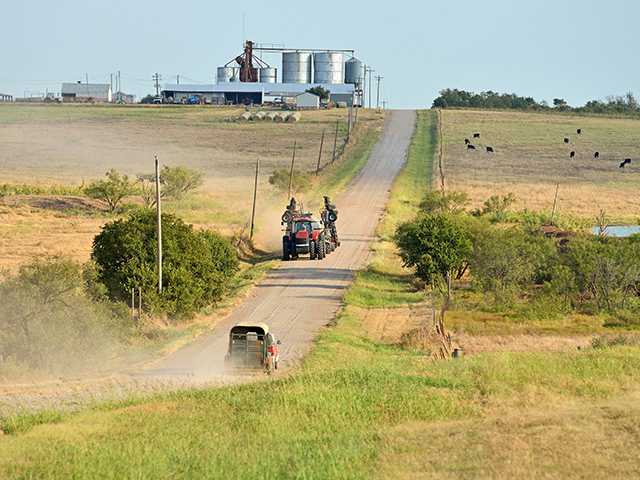Fencing Laws
A cross rural America, the story is not unusual. Joshua Garcia was driving through Wilson County, Texas, when a bull owned by Shary Pruski wandered onto the highway. Garcia hit the bull, killing it. In the process, his truck was wrecked, and he was injured. He sued Pruski.
The case went all the way to the Supreme Court of Texas before a final decision was made as to Pruski’s liability. It came down to an interpretation of two very similar sections of Texas agricultural law, both of which happened to apply at the time of the accident.
Tiffany Dowell Lashmet, agricultural law specialist at Texas A&M, explains the plaintiff in this case made an interesting legal argument.
“When a collision occurs on a state highway, Texas statute says that in order for an animal owner to be found liable, he or she has to ‘knowingly permit’ the animal to run at large,” she explains.
“When a collision occurs on another road in a county with a stock law, the law says the plaintiff only has to prove that the animal owner ‘permitted’ the animal to run at large. At issue in this case was what happens when both of these situations occur, and the accident is on a state highway in a county with a stock law? Which of the two standards is applicable?”
The court of appeals in San Antonio sided with the plaintiff. But, the Supreme Court of Texas reversed that ruling, finding for the cattle producer. As Lashmet explains, the difference hinged on where the bull was at the time and whether Pruski “knowingly permitted” the bull to be out.
EXTENDED IMPLICATIONS
Lashmet says agricultural law specialists in the state had been watching this case with a lot of interest.
P[L1] D[0x0] M[300x250] OOP[F] ADUNIT[] T[]
“It was really important, especially if you look at all of the areas this could come up. Any location where a county has a local stock law and a state or U.S. highway is going to be impacted by this ruling,” she says.
In Texas, if there is no stock law at the county level, that county is considered “open range” except for U.S. and state highways within the county, which are closed range pursuant to the state statute. Landowners in these open-range counties are generally under no obligation to fence livestock in.
“But, anywhere there is a local stock law, the responsibility is different,” Lashmet explains. That’s where this ruling will impact livestock owners. She says it will not apply to farm-to-market roads or county roads.
For any collision on a state or U.S. highway, the negligence standard, then, is based on the word “knowingly” along with the type of road the livestock has wandered onto. How does a plaintiff prove someone “knowingly permitted” livestock onto a state or U.S. highway? Lashmet says these will be very fact-specific instances.
“The courts will look at things like what condition fences were in, whether a gate was knowingly left open or whether the owner of the livestock received notice animals were out and did nothing. Also, it would make sense to consider how often these animals were out. It is going to be very fact-specific.”
In this case, Pruski testified the only other time cattle had escaped the property was eight years ago. And, Lashmet adds, she knows of only one appellate case where someone in the state was found to have knowingly allowed livestock to be out, and it was considered egregious.
KNOWLEDGE AND INSURANCE
The case is a good reminder, the attorney says, for livestock owners to know the status of their county when it comes to local stock law.
“Does the county where you have livestock have a local stock law? If so, does it apply to the entire county or just certain portions? To what animals is it applicable? I would recommend asking your local county Extension agent, county judge, county attorney or county clerk to see if a local stock law has been passed.”
Lastly, this underscores the importance of liability insurance regardless of where a livestock producer lives.
“Accidents happen, and having liability insurance to cover these situations is extremely important,” Lashmet says. “Keep in mind that in addition to providing coverage for damage up to the policy limits, insurance also provides a defense, meaning the insurance company takes care of providing the attorney to defend the policyholder in any litigation.”
FOR MORE INFORMATION:
> Texas Agriculture Law: agrilife.org/texasaglaw
> The National Agricultural Law Center: nationalaglawcenter.org
[PF_0520]
(c) Copyright 2020 DTN, LLC. All rights reserved.




